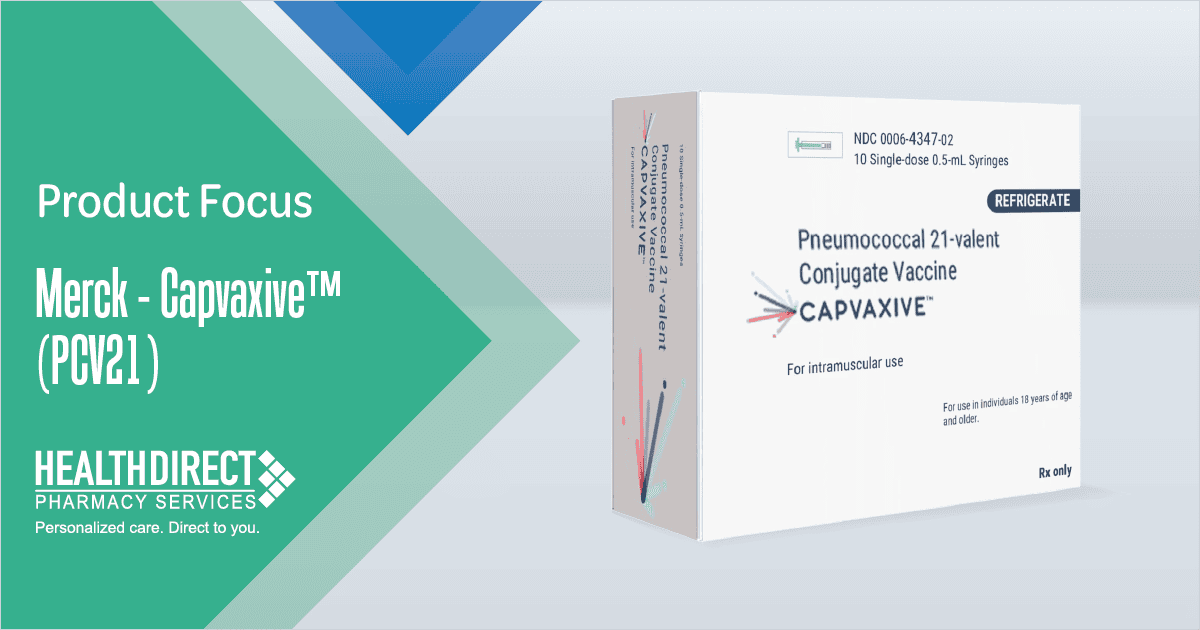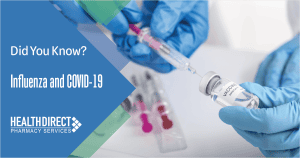Vaccines to Prevent Pneumococcal Infection and Disease
Pneumococcal disease is common in young children, but older adults are at the greatest risk of serious
illness and death.
- CDC recommends pneumococcal vaccination for people based on their age or if they have certain risk conditions.
- Pneumococcal vaccines are the best way to protect against serious pneumococcal infections.
Pneumococcal pneumonia is the most common clinical manifestation of pneumococcal disease in adults. It leads to 150,000 US hospitalizations annually and is estimated to account for 10 to 30% of all adult community-acquired pneumonia (CAP) cases in the US. CAP occurs when someone develops pneumonia outside of a hospital.
The same bacteria that cause pneumococcal pneumonia, Streptococcus pneumoniae, can invade normally sterile sites in the body, such as blood or cerebrospinal fluid. When this occurs, it is referred to as IPD (invasive pneumococcal disease).
IPD is a serious illness that can lead to hospitalization, complications including bacteremia and meningitis, and sometimes death.
In the US, IPD is ~4x more likely to lead to death in adults over the age of 65, compared to those aged 18-64
Annual rate of IPD in US adults, 2018-2021

The serotypes that cause the majority of IPD cases in US adults have shifted over time
Nearly half of all IPD cases in adults 65+ are caused by serotypes not included in any other PCV approved for adults (PCV13, PCV15, PCV20)

These values are based on CDC epidemiologic data from the years 2018-2021, representing ~35 million persons and 10 states across the US, and do not reflect the efficacy of the respective vaccines for preventing pneumococcal disease.
*New for 2024 – Meet CAPVAXIVE™ (PCV21) [by Merck Vaccines]
| Across four Phase 3 studies, CAPVAXIVE™ demonstrated robust immune responses in both vaccine-naïve and vaccine-experienced adult populations. |

PCV21 (pneumococcal conjugate vaccine) – specifically designed for adults that helps protect against the serotypes responsible for the most cases of adult IPD.
CAPVAXIVE™ is the only FDA-approved pneumococcal conjugate vaccine that helps protect against serotypes responsible for ~85% of invasive pneumococcal disease cases in adults 65 years and older, compared to ~51% by PCV20.
Compared to other pneumococcal vaccines indicated for adults, CAPVAXIVE™ includes 8 unique serotypes that are responsible for ~30% of IPD in adults aged 65 years and older.
CAPVAXIVE™ is a single-dose PCV recommended by the CDC for –
Adults 65+:
- Vaccine-naïve or vaccination history is unknown
- Previously vaccinated with PCV13 only or PPSV23 only, ≥1 year prior
- As a supplemental dose for those previously vaccinated with PCV13 and PPSV23*
Adults 19-64:
- With certain chronic medical conditions or other risk factors who are vaccine-naïve or vaccination history is unknown
- Diabetes, renal disorders, chronic heart disease, chronic liver disease, chronic lung disease including asthma, smoking, alcoholism
- Previously vaccinated but have not completed a recommended series
*Routine if PCV13 was administered at any age and PPSV23 was administered before age 65 with the last pneumococcal vaccine being at least 5 years prior. Shared clinical decision-making if PCV13 was administered at any age and PPSV23 was administered at or after the age of 65 and the last pneumococcal vaccine was at least 5 years prior.
Patients are eligible to receive CAPVAXIVE™ if they only received PCV13 or PPSV23 ≥1 year ago or if last dose of PPSV23 was completed ≥5 years ago where PCV13 and PPSV23 were both received.
- Eligibility determinations can be made by utilizing the CDC PneumoRecs VaxAdvisor app or website. This tool can be used to determine the need for additional vaccinations based on information regarding age, vaccine history and pertinent medical conditions. To access this tool, please visit: https://www2a.cdc.gov/vaccines/m/pneumo/pneumo.html or
- Download “PneumoRecs VaxAdvisor” free for iOS and Android devices.
Dosage & Administration:
Administered as a single 0.5 mL dose, INTRAMUSCULARLY (IM)
CAPVAXIVE™ is a colorless, clear to opalescent solution. Parenteral drug products should be inspected visually for particulate matter and discoloration prior to administration, whenever solution and container permit. Do not use if particulate matter or discoloration is observed. Administer intramuscularly.
How Supplied
CAPVAXIVE™ is supplied as follows:
NDC 0006-4347-01: Carton of one single-dose prefilled Luer Lock syringe with tip cap, containing 1 dose of 0.5 mL (NDC 0006-4347-99).
NDC 0006-4347-02: Carton of ten single-dose prefilled Luer Lock syringes with tip caps, each syringe containing 1 dose of 0.5 mL (NDC 0006-4347-99).
Each 0.5 mL dose contains a total of 84 mcg of pneumococcal polysaccharide antigen (4 mcg each of polysaccharide serotypes 3, 6A, 7F, 8, 9N, 10A, 11A, 12F, 15A, 15B (deOAc 15B), 16F, 17F, 19A, 20A, 22F, 23A, 23B, 24F, 31, 33F, and 35B) conjugated to approximately 65 mcg of CRM197 carrier protein, 1.55 mg L-histidine, 0.50 mg of polysorbate 20, 4.49 mg sodium chloride, and water for injection.
CAPVAXIVE™ does not contain any preservatives.
Storage and Handling
Store refrigerated at 2°C to 8°C (36°F to 46°F). Do not freeze. Protect from light.
The tip cap and plunger stopper are not made with natural rubber latex.
PATIENT COUNSELING INFORMATION
- Advise the patient to read the FDA-approved patient labeling (Patient Information).
- Inform the patient of the benefits and risks associated with vaccination with CAPVAXIVE™.
- Inform the patient that vaccination with CAPVAXIVE™ may not protect all vaccine recipients.
- Instruct the patient to report any adverse reactions to their healthcare provider or to the vaccine manufacturer or the U.S. Department of Health and Human Services through the Vaccine Adverse Event Reporting System (VAERS), 1-800-822-7967, or report online at www.vaers.hhs.gov.
Safety Information:
- Do not administer CAPVAXIVE™ (Pneumococcal 21-valent Conjugate Vaccine) to individuals with a history of a severe allergic reaction (eg, anaphylaxis) to any component of CAPVAXIVE™ or to diphtheria toxoid.
- Appropriate medical treatment must be immediately available to manage potential anaphylactic reactions following administration of CAPVAXIVE™.
- Individuals with altered immunocompetence, including those receiving immunosuppressive therapy, may have a reduced immune response to CAPVAXIVE™.
- The most commonly reported (>10%) solicited adverse reactions in individuals 18 through 49 years of age who received CAPVAXIVE™ were: injection-site pain (73.1%), fatigue (36.0%), headache (27.5%), myalgia (16.4%), injection-site erythema (13.8%), and injection-site swelling (13.3%).
- The most commonly reported (>10%) solicited adverse reactions in individuals 50 years of age and older who received CAPVAXIVE™ were: injection-site pain (41.2%), fatigue (19.7%), and headache (11.0%).
- Vaccination with CAPVAXIVE™ may not protect all vaccine recipients.
- Before administering CAPVAXIVE™, please read the accompanying Prescribing Information.
Reimbursement
Medicare Part B (Medical Insurance) covers pneumococcal shots (or vaccines) for older adults. Commercial insurance may provide coverage for employed adults patients aged 19-64 years. Consult private insurer or public program for reimbursement details.
References:
- CDC. Pneumococcal Vaccine Recommendations. Available from: https://www.cdc.gov/pneumococcal/hcp/vaccinerecommendations/index.html
- MerckVaccines. Capvaxive™ Pneumococcal 21-valent Conjugate Vaccine. Available from: https://www.merckvaccines.com/capvaxive/
- ABCs bact facts interactive data dashboard. SPN serotypes 1998-2022. Centers for Disease Control and Prevention. May 22, 2024. Accessed June 20, 2024. https://www.cdc.gov/abcs/bact-facts/data-dashboard.html
- Data available on request from Merck & Co., Inc., Professional Services-DAP, WP1-27, PO Box 4, West Point, PA 19486-0004. Please specify information package US-PVV-00408
- Medicare.gov Pneumococcal Shots. Available from: https://www.medicare.gov/coverage/pneumococcal-shots






